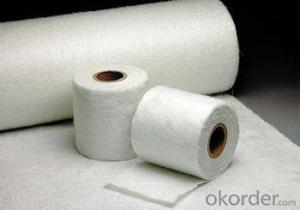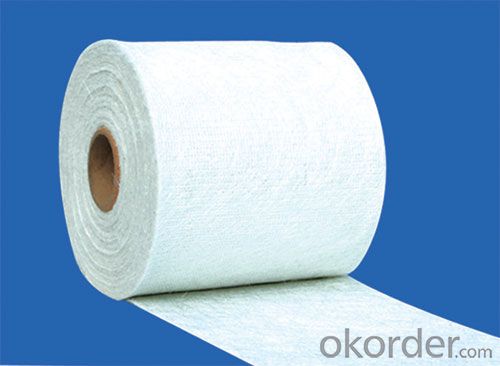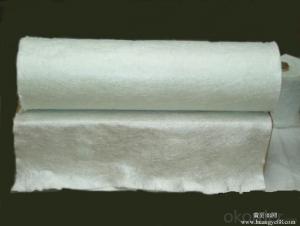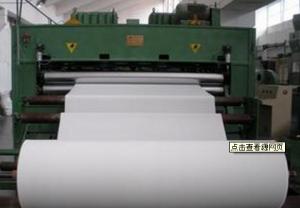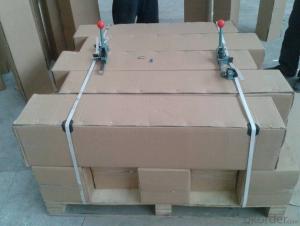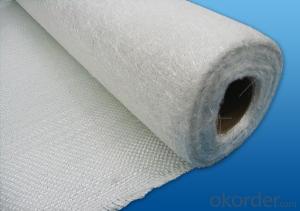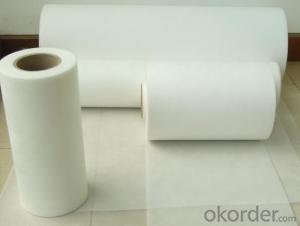Fiberglass Mat Tissue e-glass Fiber Stitched Combo Mat for FRP Usage
- Loading Port:
- Shanghai
- Payment Terms:
- TT or LC
- Min Order Qty:
- 10000 kg
- Supply Capability:
- 200000Kg Per Month kg/month
OKorder Service Pledge
OKorder Financial Service
You Might Also Like
1.Brief Introductions
(0°/90°) series mat:
Two layers of roving(550g/㎡-1250g/㎡) are aligned at 0°/90° with or without a layer of chopped strands(0g/㎡-500g/㎡)。The product has a maximum width of 100 inches.This product can be used for manufacturing boats,cases and shell of car.
E-LT(0°/90°)Biaxial products
2.Product Structure
3.Product Specifications
Product No. | Overall Density | .0° Roving Density | .90° Roving Density | Chop Density | Polyester Yarn Density |
(g/m2) | (g/m2) | (g/m2) | (g/m2) | (g/m2) | |
E-LTMC1603 | 671.74 | 303.8 | 247.96 | 101.62 | 18.36 |
E-LTMC1608 | 844.76 | 303.8 | 247.96 | 274.64 | 18.36 |
E-LTMC1808 | 903.8 | 303.8 | 307 | 274.64 | 18.36 |
E-LTMC1810 | 934.31 | 303.8 | 307 | 305.15 | 18.36 |
E-LTMC1815 | 1086.89 | 303.8 | 307 | 457.73 | 18.36 |
E-LTMC2408 | 1101.04 | 405.66 | 401.46 | 274.64 | 19.28 |
E-LTMC2415 | 1284.13 | 405.66 | 401.46 | 457.73 | 19.28 |
E-LTMC3205 | 1272.69 | 607.6 | 491.86 | 152.58 | 20.65 |
E-LTMC3205-HS | 1388.43 | 607.6 | 607.6 | 152.58 | 20.65 |
E-LTMC3208 | 1394.75 | 607.6 | 491.86 | 274.64 | 20.65 |
E-LTMC3610 | 1541 | 607.6 | 607.6 | 305.15 | 20.65 |
E-LTMC3615 | 1693.58 | 607.6 | 607.6 | 457.73 | 20.65 |
E-LTC1800 | 629.16 | 303.8 | 307 | - | 18.36 |
E-LTC2400 | 826.4 | 405.66 | 401.46 | - | 19.28 |
E-LTC3600 | 1235.85 | 607.6 | 607.6 | - | 20.65 |
E-UDL450 | 479.14 | 405.66 | 55.12 | - | 18.36 |
E-UDL500 | 490.85 | 405.66 | 66.83 | - | 18.36 |
E-UDL600 | 608.9 | 566.92 | 23.62 | - | 18.36 |
E-UDL1200 | 1207.34 | 1133.86 | 55.12 | - | 18.36 |
E-UDLM1250 | 1258.98 | 1133.86 | 55.12 | 50.00 | 20 |
E-UDLM1300 | 1338.68 | 1215.2 | 55.12 | 50.00 | 18.36 |
Special specification can be produce according to customer requirements.
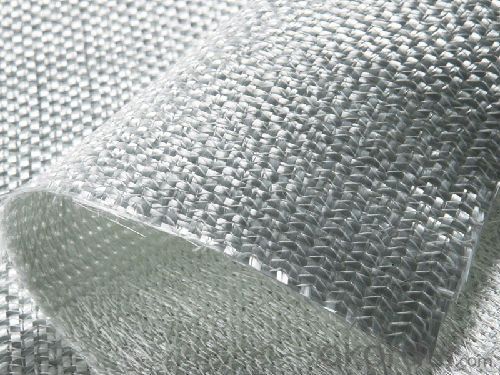
4.FAQ
Packaging:
Each roll is wound onto a paper tube which has an inside diameter of 76mm and the roll has a diameter of 275mm. The roll is wrapped up with plastic film,and then packed in a cardboard box or wrapped up with kraft paper. The rolls can be horizontally placed. For transportation, the rolls can be loaded into a cantainer directly or on pallets.
Storage:
Unless otherwise specified, It should be stored in a dry, cool and rain-proof area. It is recommended that the room temperature and humidity should be always maintained at 15℃~35℃ and 35%~65% respectively.
- Q: Is fiberglass mat tissue resistant to alkalis?
- Indeed, fiberglass mat tissue exhibits resistance against alkalis, making it a suitable option for construction and industrial purposes that involve interactions with alkaline materials like cement or concrete. Its design specifically caters to providing exceptional durability and longevity within such environments, thanks to its high resistance against alkalis. This durability stems from the chemical composition and structure of the fiberglass, which enables it to withstand the corrosive impacts of alkalis without any degradation. Hence, fiberglass mat tissue emerges as a dependable choice for projects requiring exposure to alkalis.
- Q: What is the typical width of fiberglass mat tissue rolls?
- The typical width of fiberglass mat tissue rolls can vary depending on the specific manufacturer and intended application. However, in the construction and insulation industries, fiberglass mat tissue rolls are commonly available in widths ranging from 1.22 meters (4 feet) to 2.44 meters (8 feet). These dimensions are often chosen to align with standard building materials and construction practices. It is important to note that there may be variations in width options depending on the region or supplier, so it is advisable to consult with the manufacturer or supplier for the specific width requirements for a particular project.
- Q: Is fiberglass mat tissue resistant to UV degradation?
- Yes, fiberglass mat tissue is generally resistant to UV degradation. The material is designed to withstand exposure to sunlight and does not easily degrade or deteriorate due to UV radiation.
- Q: Are there any specific certifications or standards that fiberglass mat tissue must meet?
- Yes, there are specific certifications and standards that fiberglass mat tissue must meet in order to ensure its quality and suitability for various applications. One of the most widely recognized standards for fiberglass mat tissue is the ASTM D 4601 standard, which establishes the minimum requirements for glass fiber mats used in roofing and waterproofing systems. This standard covers the physical properties of the mat such as weight, thickness, tensile strength, tear resistance, and water resistance. In addition to ASTM D 4601, there are other certifications and standards that fiberglass mat tissue can be tested against, depending on its intended use. For instance, fiberglass mat tissue used in the automotive industry may need to meet specific standards such as ISO 9001 or IATF 16949, which ensure quality management systems and product consistency. Moreover, fiberglass mat tissue used in construction or building materials may need to comply with standards set by regulatory bodies or organizations such as the International Code Council (ICC), the American National Standards Institute (ANSI), or the Underwriters Laboratories (UL). These standards typically focus on fire resistance, thermal insulation properties, and overall safety. Overall, the specific certifications and standards that fiberglass mat tissue must meet depend on its intended application and the industry in which it is used. These standards play a crucial role in ensuring the quality, performance, and safety of fiberglass mat tissue products.
- Q: Can fiberglass mat tissue be used for roofing?
- Roofing can indeed utilize fiberglass mat tissue. This material is frequently employed in the construction industry for a multitude of purposes, including roofing. It is renowned for its robustness, durability, and ability to endure harsh weather conditions. In roofing systems, fiberglass mat tissue often serves as a reinforcing layer, bestowing added strength and stability to the roof. By offering exceptional resistance to water, fire, and external factors, it significantly enhances the roof's overall performance and lifespan. Moreover, fiberglass mat tissue is lightweight and flexible, facilitating its handling and installation on roofs of varying shapes and sizes. Ultimately, due to its exceptional properties and performance, fiberglass mat tissue proves to be a fitting choice for roofing applications.
- Q: Is fiberglass mat tissue suitable for insulation in food processing facilities?
- Fiberglass mat tissue is not a suitable choice for insulation in food processing facilities due to its intended use as a reinforcement in composites, such as roofing and construction materials, rather than meeting the specific requirements of food processing environments. In order to ensure the safety and compliance of food processing facilities, it is necessary to use insulation materials that are safe, durable, and in accordance with strict health and safety regulations. Fiberglass mat tissue lacks these essential characteristics and may potentially endanger food safety. To address this issue, it is recommended to utilize insulation materials that are specifically designed for food processing facilities. These materials should be non-toxic, resistant to moisture, mold, and bacteria, and capable of withstanding high temperatures and frequent cleaning and sanitization procedures. Some examples of appropriate insulation materials for food processing facilities include closed-cell foam, mineral wool, and polyisocyanurate (PIR) foam. These materials have undergone extensive testing and have been proven to meet the necessary standards and regulations for use in food processing environments. Given the importance of prioritizing the safety and hygiene of food processing facilities, it is advisable to seek guidance from experts or insulation specialists who possess the knowledge and expertise to recommend the most suitable and compliant insulation options for these facilities.
- Q: How does fiberglass mat tissue compare to other types of reinforcement materials?
- Fiberglass mat tissue, widely utilized in industries such as construction, automotive, and marine, serves as a common type of reinforcement material. When evaluating fiberglass mat tissue in comparison to other reinforcement materials, several factors come into play. First and foremost, fiberglass mat tissue exhibits remarkable strength and durability. With its high tensile strength, it can endure substantial pulling or stretching forces without distorting or breaking. This strength is comparable, if not superior, to reinforcement materials like carbon fiber or aramid fibers. Furthermore, fiberglass mat tissue displays excellent resistance to chemical, moisture, and UV degradation, rendering it suitable for long-term usage in various environments. Another advantage of fiberglass mat tissue lies in its cost-effectiveness. In contrast to other reinforcement materials, fiberglass is relatively affordable, making it a popular choice for manufacturers and builders who require a cost-efficient solution without compromising quality. Its affordability expands its accessibility to a wider array of applications and industries. Moreover, fiberglass mat tissue is renowned for its versatility. It can be molded into different shapes and sizes, allowing for customization and flexibility in design. This adaptability makes fiberglass mat tissue suitable for a broad range of applications, ranging from simple repairs to complex structural reinforcements. However, it is important to note that fiberglass mat tissue may have certain limitations when compared to other reinforcement materials. For instance, it may not possess the same level of stiffness or strength as carbon fiber, which is often preferred in high-performance applications. Additionally, fiberglass mat tissue may exhibit lower resistance to impact or fatigue when compared to materials like aramid fibers. In conclusion, fiberglass mat tissue provides a favorable combination of strength, durability, cost-effectiveness, and versatility, making it a favored choice for numerous applications. While it may have some limitations when compared to other reinforcement materials, its overall performance and affordability render it a widely utilized and dependable option in various industries.
- Q: Is fiberglass mat tissue suitable for construction applications?
- Indeed, fiberglass mat tissue proves to be a fitting material for construction purposes. Renowned for its robustness, longevity, and ability to withstand diverse environmental conditions, this versatile substance is frequently employed in roofing, flooring, insulation, and wall panel installations. Fiberglass mat tissue emerges as an exceptional selection for construction ventures as it bestows reinforcement and stability upon a range of materials. When incorporated into roofing materials, it fortifies them against impacts, weathering, and fires. Similarly, it bolsters the strength and durability of flooring systems, rendering them capable of withstanding substantial loads and heavy foot traffic. Moreover, fiberglass mat tissue exhibits commendable insulation capabilities. It serves as an efficacious insulating component for walls, ceilings, and floors, enabling the maintenance of a comfortable indoor temperature while diminishing energy consumption. Its thermal and acoustic insulation properties render it an ideal choice for construction applications. Furthermore, its imperviousness to moisture, chemicals, and corrosion makes fiberglass mat tissue a suitable option for deployment in areas characterized by high humidity or exposure to harsh chemicals. Thanks to its resistance to decay, it guarantees durability, ensuring longevity in construction projects. To conclude, fiberglass mat tissue is an apt choice for construction applications due to its strength, durability, insulation properties, and resistance to various environmental factors. Its adaptability and reliability have cemented its popularity within the construction industry.
- Q: Can fiberglass mat tissue be used for composite panel manufacturing?
- Yes, fiberglass mat tissue can be used for composite panel manufacturing. Fiberglass mat tissue is a thin and lightweight material that is typically made from randomly oriented fiberglass strands bonded together with a binder. It is commonly used as a reinforcement material in composite manufacturing processes. When used in composite panel manufacturing, fiberglass mat tissue is typically combined with other materials such as resin and a core material to create a strong and durable panel. The mat tissue provides reinforcement and strength to the panel, helping to distribute loads and prevent cracking or delamination. Fiberglass mat tissue is known for its excellent tensile strength, dimensional stability, and resistance to chemicals, making it well-suited for use in composite panel manufacturing. It can be used in a variety of applications, including construction, transportation, marine, and aerospace industries. Overall, fiberglass mat tissue is a versatile and effective material that can be successfully used in the manufacturing of composite panels. Its properties and characteristics make it a reliable choice for creating strong and durable panels for various applications.
- Q: How does the fiber orientation of fiberglass mat tissue affect its strength?
- The fiber orientation of fiberglass mat tissue greatly affects its strength. When the fibers are aligned in a specific direction, they provide maximum strength in that direction. However, if the fibers are randomly oriented, the overall strength of the material is reduced as the load may not be evenly distributed among the fibers. Therefore, proper fiber orientation is crucial in maximizing the strength of fiberglass mat tissue.
Send your message to us
Fiberglass Mat Tissue e-glass Fiber Stitched Combo Mat for FRP Usage
- Loading Port:
- Shanghai
- Payment Terms:
- TT or LC
- Min Order Qty:
- 10000 kg
- Supply Capability:
- 200000Kg Per Month kg/month
OKorder Service Pledge
OKorder Financial Service
Similar products
Hot products
Hot Searches
Related keywords
